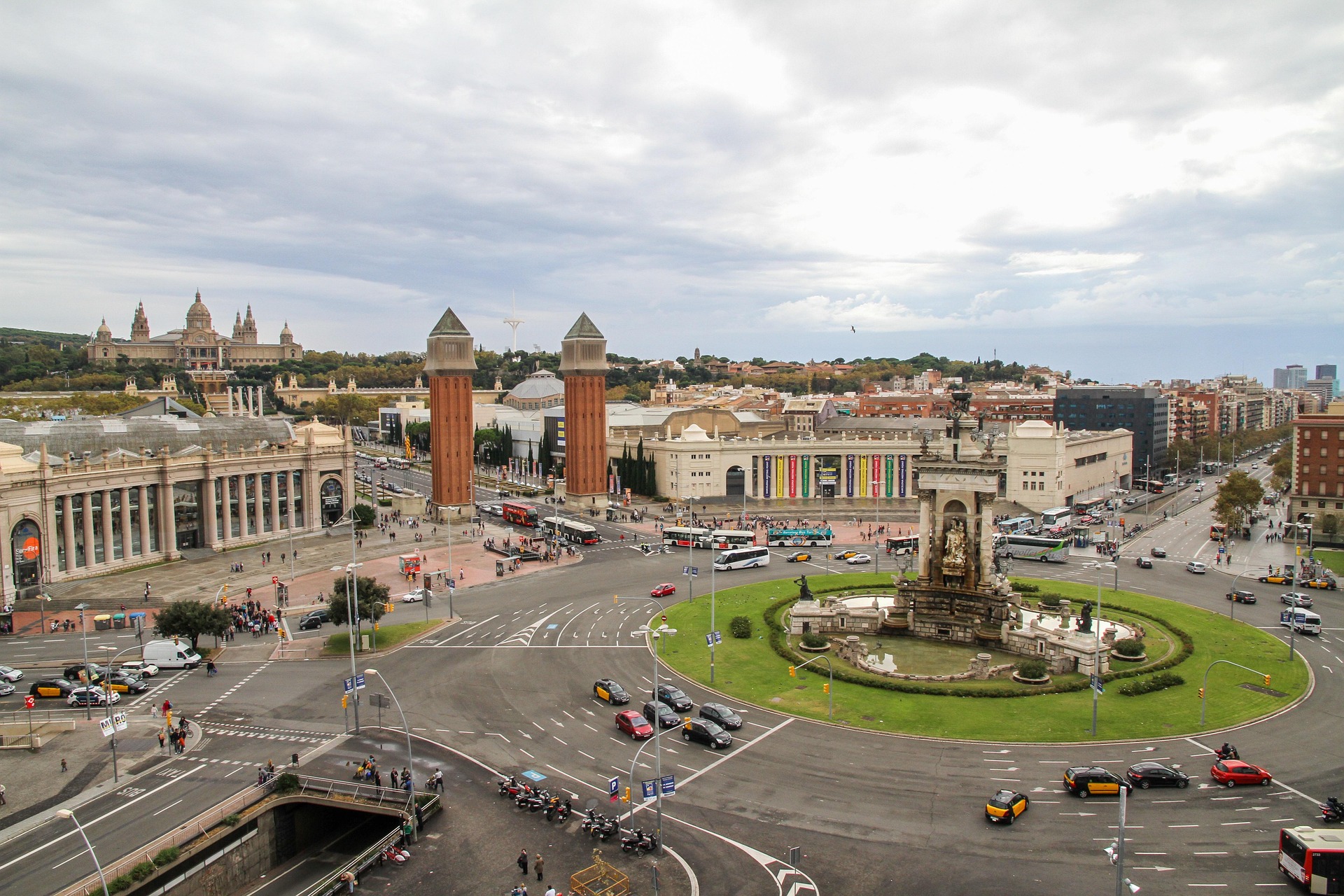Most Affordable Cities In Spain

Studying abroad isn’t easy. And if you’re not living in one of many affordable cities in Spain, you could be draining your finances faster than you think! It’s important to find a comfortable and highly convenient place to stay while you’re studying abroad. However, that doesn’t mean you should be willing to spend over your limit to stay in condos and hotels.
Spain is a beautiful country with a rich culture and history. While Barcelona and Madrid are two of the most expensive cities in the country, that doesn’t mean that other cities are out of reach as well. After considering all of the benefits that come with what Spain offers, this country is one of the perfect places for students to study and work. And when you’re living in one of the more affordable cities, travelling around becomes especially fun.

Finding the Most Affordable Cities to Live in Spain
People in Spain have a relatively lower cost of living compared to other European countries. While this can change over time, for now Spain is among the most affordable nations if you only consider its essentials and current economic status.
You can create a carefree study plan by finding the most affordable cities in Spain. After all, when you’re away from home, you first need to find a place to live and study after school. In this article we are going to talk about the cheapest cities to live in when you’re studying in Spain:
Granada
Granada is among the most affordable cities in Spain for students and workers. It’s 250 kilometres east of another very affordable city, Seville. Granada experiences a cooler and slightly longer winter than other cities in Spain.
It’s perfect for those students who like to study in smaller environments. The world-famous Spanish monument, Alhambra Palace, is also in Granada. It’s a massive fortress that spreads through a few thousand acres of land.
The rich culture of Granada includes middle-eastern values, Arabic traditions, North African cafes and stylish shisha shops. It’s the perfect place to live a relatively low key life, and have a lovely experience studying and learning about this incredible city.
It’s so affordable that you can expect to spend between 800 to 1,100€ only per month to live a comfortable and carefree lifestyle, while studying at a famous University. In terms of entertainment, Granada beats most Spanish cities.
You’ll always have something to enjoy while you’re in Granada, whether a music and sports festival or a cultural celebration. The major roads and budget-friendly healthcare costs make it suitable for students on a budget. The residences are cheap, whether you’re looking to buy or rent.
Alicante
Every student looking to study abroad will certainly have some passions and interests. Some like surfing while others love exploring local venues and engaging with the city’s unique culture. Students that are coming from different pockets of the world will also have unique interests. However, as a student in Spain, you need to find a city that’s affordable, has a lower cost of living and is close to what you’re passionate about.
If you want to live near fantastic beaches and engage in beach/water sports without having to spend much on travelling, you can choose Alicante over other cities. It’s affordable, exciting and full of adventures. It has the busiest airport in Spain and has more air links than any other major city as well.
It’s hard to beat Alicante when it comes to air travel; even Valencia and Seville’s airports don’t compare to Alicante. However, the lifestyle here is eccentric with chill vibes and plenty of amazing festivals. You can discover its beaches, festivities and cultural celebrations while being part of the community.
Living comfortably in Alicante costs around 850 to 1,050€ per month, but this cost of living will also vary from person to person. Overall, the necessities (food, water and utility) and outdoor expenses are relatively lower compared to other cities.
Palma de Mallorca
The Spanish Island of Mallorca is home to Palma de Mallorca, an affordable city in the country. If being on an island isn’t exciting enough, Spain makes it even more interesting and attractive by improving the cost of living.
It’s one of the cheapest cities to live in when in Spain. It’s famous for its nightlife and hospitality facilities, including hotels, clubs and restaurants. The city has countless attractions like architectural landmarks that depict the nation’s cultural heritage.
For your information, it’s one of the most visited destinations in Spain, thanks in part to its massive airport that can accommodate multiple flights at the same time. The city is connected via air travel and allows people to also go on international flights.
The city’s affordability especially shines in its monthly cost of living, which is around 800 to 900€ per individual. Keep in mind that living costs vary significantly based on your needs and interests. When looking to study in one of Spain’s top universities, students look for affordable places to live. Surely, you don’t want to overspend while you’re still going to university. After all, your savings today could become investments tomorrow. Out of all the Spanish cities, you will find that the regions mentioned above are the most affordable.
Conclusion
Moving abroad is difficult and you will experience it firsthand during your first few trips from home to the city you’re planning to live in. Make sure you choose one of the most affordable cities in Spain to save money effectively. In the list of cities above, we outlined some of the cheapest cities that would make for some of the best places to live for students in Spain. It depends on whether you want to purchase the property, rent it or bring in a roommate. Needless to say, the cost of living varies from person to person based on their needs.
Reference Links:
- https://www.jtgtravel.com/europe/spain/cheapest-places-to-live-in-spain/
- https://myspainvisa.com/cheapest-cities-live-spain/
- https://www.studying-in-spain.com/living-in-spain/cheapest-cities-to-live-in-spain-for-international-students/
I spent a fall semester in Valencia
Finding the Valencia program was fate. I still feel like it's a rare, undiscovered secret that only I was privileged enough to explore and call home. It fulfilled a combination of desires for me. I knew I wanted to learn Spanish, and had boiled it down to Spain because unlike South or Central America, I'd have access to traveling throughout Europe and North Africa.
From there, I realized I wanted a city of a decent size. Madrid and Barcelona were the other two Spanish cities for which programs were offered. I'd been to Madrid and enjoyed it very much, but I didn't like that it was so far inland. I heard Barcelona was amazing, but its main language was Catalan.

Then I came across Valencia, Spain's third largest city, located east on the Mediterranean coast. With about 800,000 people, it was an ideal size for being able to experience that large metropolitan vibe while still being able to run into familiar neighborhood faces. Valencia is also the birthplace of paella, and boasted some of Spain's best cuisine (in my humble opinion)
I knew I wanted to learn Spanish
The littoral outlet for well-heeled Deià, a village that has been home to Mick Jagger, Andrew Lloyd Webber, Richard Branson and poet Robert Graves who is buried there, Cala Deià may be small (200m wide), far from sandy beaches but the water is crystal clear, the rocky outcrops imposing and the atmosphere convivial.
A mixture between the fresh caught seafood from the adjacent sea and the best rice dishes, as well as the sweet delectables like buñuelos and the sugary almond treat turron.
But dessert for me tended to be fruit, as I took advantage of the region's incredible bounty (the Valencia orange being one of the most delicious fruits I've ever had -- that perfect balance between sweetness and citrus acidity).
My plans for the near future
As of now, I am set to graduate in June from CUNY Hunter College with a bachelor's degree in Media Studies. I've already made plans, while not yet fully developed, to take some time off after undergrad and return to Spain.
I am going to try and find a job or internship somewhere in the vast field of media. My mind's run agog with possibilities: finding a job or internship, teaching English, or even enrolling in a Spanish university for graduate school. In a perfect world, I would be a foreign correspondent based in Madrid for The New York Times. favourite beach, Cala Deià, can be found here, one of the most bewitching inlets on Mallorca’s entire coastline with the clientele to match.

.webp)


















.webp)





